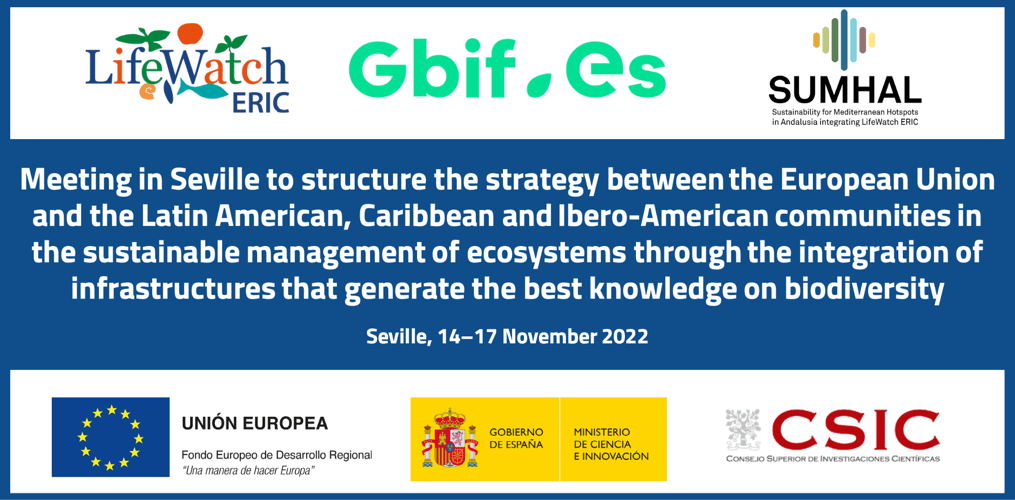
This week, coordinators of national biodiversity information networks linked to GBIF, the Global Biodiversity Information Facility, providing the largest biodiversity data network in the world, will work together to accelerate the development and use of data technology networks and services, with the support of the EU and the UN. The meeting will be held in the Cartuja Science & Technology Park in Seville, home to the LifeWatch ERIC ICT-Core.
Understanding and coordinating biodiversity information is essential to respond to current social and environmental challenges and for the sustainable management of ecosystems. The strategic meeting, organised by LifeWatch ERIC, will bring together 30 experts and coordinators from 15 countries in Latin America, the Caribbean and Ibero-America: Argentina, Brazil, Chile, Colombia, Costa Rica, Cuba, Ecuador, Spain, Guatemala, Mexico, Nicaragua, Peru, Portugal, Uruguay and Venezuela, with the following aims:
1. Development of a common roadmap for the development and consolidation of (e-)Infrastructures and services that, from the perspective of e-Science, contribute to:
– the best sustainable management of the territory;
– the conservation of biodiversity and the natural environment;
– the achievement of the United Nations 2030 Sustainable Development Goals, in synergy with the EU Green Deal, EU Blue Growth, EU Biodiversity Strategy 2030 and EU Farm to Fork programmes, among others.
2. Exchange of experiences and capacities in handling issues and challenges common to national and international infrastructures, data, information and knowledge in (e-)biodiversity. A consensus document of conclusions including a EU-LAC Roadmap to co-develop, build and deploy through the financial support of the relevant calls (CYTED, GBIF, Cooperation Agencies, Horizon Europe, the NDICI, etc.)
3. The development of the above based on the paradigm of biogeographical regions in the CELAC area, through national cross-border collaboration between the states involved, in collaboration with the EU and the UN, e.g., through IKRI, the Indigenous Knowledge initiative Research Initiative, based on the aforementioned financial instruments.
Participating in the inaugural session of this initiative are Christos Arvanitidis, LifeWatch ERIC CEO; Juan Miguel González Aranda, CTO and Head of LifeWatch Spain; Joe Miller, GBIF Executive Secretary; Margarita Paneque Sosa, Institutional Coordinator of CSIC in Andalusia; Francisco Pando de la Hoz, representative of GBIF Spain; Melisa Ojeda, representative of GBIF nodes in CELAC area, and many others. Javier Castroviejo Bolívar, eminent Spanish biologist, UNESCO Consultant and former president of IberoMaB, the Network of National MaB Committees and Biosphere Reserves of Ibero-America and the Caribbean, will give a keynote address.